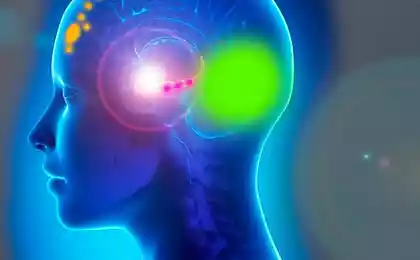434
Whether plants feel pain?
Fifty eight million forty six thousand two hundred forty
For a moment remember the summer smell of freshly cut grass. For many people, this smell suggests that the temperature is very pleasant and that you can walk/relax/relax/breathe. For grass this smell indicates a completely different story.
The smell of freshly cut grass is actually chemically signal of distress. It is used by plants as a request for the nearby creatures to save them from attack (usually insects, but in our case the mower blade). In the end, when it is dangerous moment, whether it is the equipment to bevel the grass or hungry caterpillar, plants cannot get their roots and run away. They have to fight for a place.
To protect themselves, plants in motion a chain of molecular responses. These chemical communications can be used in order to poison an enemy, alert surrounding plants to potential threat or to attract beneficial insects with a very specific purpose. Sometimes molecular protection performs a dual function. For example, plants that produce caffeine use the chemical for self-defense, and for stupefying bees. Bees are caffeine, fly to plants in the coffee shop opposite, returning again and again and pollinating them as payment.
Obviously, plants can communicate. But can they feel pain? Vegetarians will be very difficult to cut the salad, knowing that he might be feeling. And then they there at all?
According to scientists of the Institute of applied physics of the University of Bonn in Germany, plants emit gases as equivalent to tears of pain. Using the laser MIC, the scientists caught the sound waves that emit plants, releasing gas when you cut them or break. Although the human ear, these sounds are not heard, the secret voices of plants have revealed that cucumbers scream when they are cut, and flowers whine when their leaves are plucked.
There is also evidence that plants can hear when someone of their relatives eat. Scientists from the University of Missiri-Columbia found that plants understand and respond to the sounds caterpillars that sit on them and eat. When plants hear such sounds, they activate a defense mechanism.
For some scientists, the evidence of these complex communication systems is the production of noise using gases in distress — suggests that plants feel pain. Others claim it can't be pain if there is no brain that registers feelings. Nevertheless, more and more scientists admit that plants can exhibit intelligent behavior and not having a brain or consciousness.
The growth of plants can change their trajectories to avoid obstacles and find support for their shoots. This activity is related to the complex biological network, distributed in the roots, leaves, and stems of plants. It helps the plants to spread, grow and survive. Trees in a forest, for instance, can warn their relatives about the attacks of insects.
One scientist brought in a tree radioactive isotopes of carbon and saw that a few days the carbon was passed from tree to tree, until the entire 30-metre area of the forest is not connected. Scientist learned that the Mature trees are "connected" to the network to share nutrients in the root system and feed nearby seedlings until it becomes high enough to receive the light and power of their own.
Source: hi-news.ru
For a moment remember the summer smell of freshly cut grass. For many people, this smell suggests that the temperature is very pleasant and that you can walk/relax/relax/breathe. For grass this smell indicates a completely different story.
The smell of freshly cut grass is actually chemically signal of distress. It is used by plants as a request for the nearby creatures to save them from attack (usually insects, but in our case the mower blade). In the end, when it is dangerous moment, whether it is the equipment to bevel the grass or hungry caterpillar, plants cannot get their roots and run away. They have to fight for a place.
To protect themselves, plants in motion a chain of molecular responses. These chemical communications can be used in order to poison an enemy, alert surrounding plants to potential threat or to attract beneficial insects with a very specific purpose. Sometimes molecular protection performs a dual function. For example, plants that produce caffeine use the chemical for self-defense, and for stupefying bees. Bees are caffeine, fly to plants in the coffee shop opposite, returning again and again and pollinating them as payment.
Obviously, plants can communicate. But can they feel pain? Vegetarians will be very difficult to cut the salad, knowing that he might be feeling. And then they there at all?
According to scientists of the Institute of applied physics of the University of Bonn in Germany, plants emit gases as equivalent to tears of pain. Using the laser MIC, the scientists caught the sound waves that emit plants, releasing gas when you cut them or break. Although the human ear, these sounds are not heard, the secret voices of plants have revealed that cucumbers scream when they are cut, and flowers whine when their leaves are plucked.
There is also evidence that plants can hear when someone of their relatives eat. Scientists from the University of Missiri-Columbia found that plants understand and respond to the sounds caterpillars that sit on them and eat. When plants hear such sounds, they activate a defense mechanism.
For some scientists, the evidence of these complex communication systems is the production of noise using gases in distress — suggests that plants feel pain. Others claim it can't be pain if there is no brain that registers feelings. Nevertheless, more and more scientists admit that plants can exhibit intelligent behavior and not having a brain or consciousness.
The growth of plants can change their trajectories to avoid obstacles and find support for their shoots. This activity is related to the complex biological network, distributed in the roots, leaves, and stems of plants. It helps the plants to spread, grow and survive. Trees in a forest, for instance, can warn their relatives about the attacks of insects.
One scientist brought in a tree radioactive isotopes of carbon and saw that a few days the carbon was passed from tree to tree, until the entire 30-metre area of the forest is not connected. Scientist learned that the Mature trees are "connected" to the network to share nutrients in the root system and feed nearby seedlings until it becomes high enough to receive the light and power of their own.
Source: hi-news.ru
True table of D. I. Mendeleev immediately after his death was circumcised
Dirty air can cause autism





















